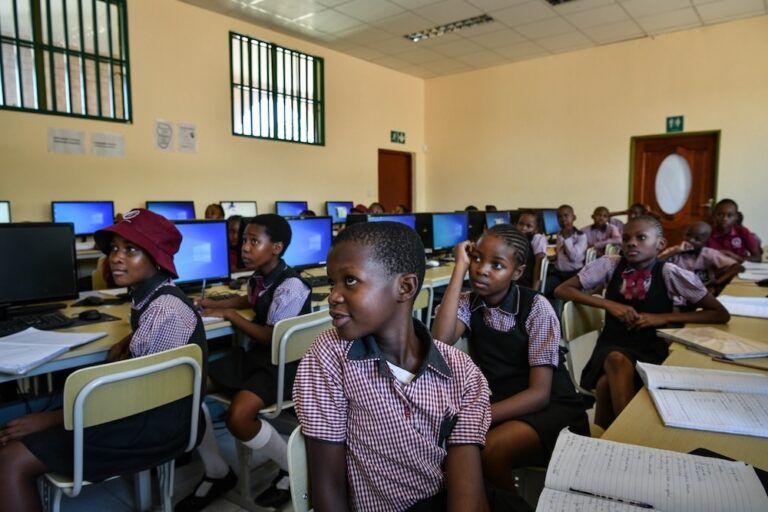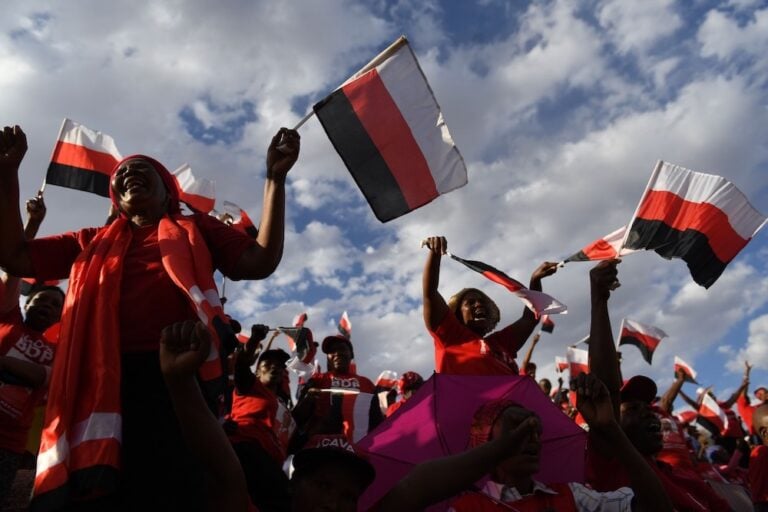Opposition parties are increasingly voicing their concern over their exclusion from the state media during a crucial election period.
(MISA/IFEX) – 17 August 2009 – MISA-Botswana has been following the latest developments in which opposition parties are increasingly voicing their concern and frustration over their exclusion from the state media, especially Botswana Television during a crucial election period. We have in the past voiced our concern regarding the bias of the state broadcasters and we wish to share the current concerns raised by the Botswana Congress Party and the Botswana National Front.
During an election period the issue of equal access to the media, particularly radio and television is of critical importance and has a decisive influence on the election outcome. Biased coverage therefore seriously erodes democracy.
For fair political contestation, the state media, who are funded by taxpayers, not ruling party money, must apportion air space equally to all players in the field. This is a requirement documented in a number of principles that Botswana adheres to. We wish to remind the political leadership and the administrators of our state broadcasters of the following principles espoused by the Southern African Broadcasting Association, (SABA) which Botswana Television and Radio Botswana are members of.
1. Public broadcasting serves the interest of all people, irrespective of religion, political belief, culture, race and sex. In its overall programming it must reflect, as comprehensively as possible, the range of existing opinions and of social, political, philosophical, religious, scientific and artistic trends.
2. If democracy is to take root and have meaning beyond the formal electoral process, people in Southern Africa must be in a position to understand the changes taking place around them. They must be enabled to actively participate in processes and decisions which affect them and make informed choices.
3. Constitutions protect the freedom of expression and information for every citizen. Broadcasters must be in the forefront of this development and custodians of the constitutional rights.
It is therefore clear that there is credence in opposition parties’ concerns. MISA-Botswana has noted the disproportionate coverage in favor of the ruling party compared to other parties on Botswana Television. We have nothing against coverage of the ruling party by the state media but what we are concerned about is its monopoly of the airwaves. The state broadcasters must be a forum for democratic debate where all diverse voices are heard, including dissenting voices.
MISA-Botswana has repeatedly called for the transformation of Radio Botswana and Botswana Television from a government department into public broadcasters. Such a transformation should entail governance of the broadcasters by an inclusive board chosen in a transparent process and thus free the broadcasters from political interference. The editorial independence of the broadcasters should also be guaranteed.
At the moment, editorial decisions at the broadcasters are not left to the professionals. This clearly goes against the principles of the SADC ICT Declaration for which Botswana is a signatory, which calls for government to concern itself with policy and leave the running of media bodies to professionals and regulation to independent regulators.
To illustrate this, just the other day for a second time, the Minister of Communications, Science and Technology Pelonomi Venson-Moitoi, called Radio Botswana after a heated Masa-a-sele phone-in segment to admonish callers who were blaming the government for the University of Botswana accommodation problems.
If the minister wanted to participate in the program she should have done so when it was still on air like any ordinary Botswana so that callers could also respond to her accusations. Her actions could be seen as an attempt to stifle democratic debate.
On this note MISA-Botswana calls on the Director of Broadcasting Services Mr Mogomotsi Kaboeamodimo to acknowledge that there is a problem in terms of coverage at the state broadcasters, especially Botswana Television. He should take the necessary corrective measures to ensure that there is equitable coverage for all political parties in news and current affairs. The usual excuses such as shortage of equipment and personnel can no longer hold water.
Something clearly has to be done. If the director cannot take the necessary corrective measures, the honorable move will be for him to resign so as not to be seen to be perpetuating the status quo.


